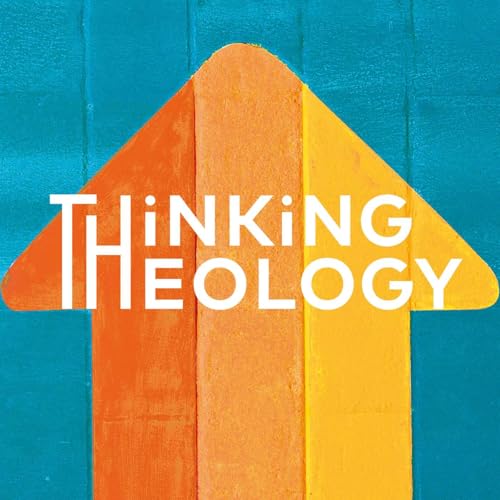Episode IntroWhat does God do? In the last few episodes of Thinking Theology we’ve been thinking about what God is like: what is his nature, what is his character and what he does. Last time we looked at God’s work in creation. But God not only created the world, he also sustains it, upholding it at every moment. In theology, that’s called providence.But what does it mean that God is upholding the world? What does he control? Is there anything outside his control?That’s what we’re thinking about in this episode of Thinking Theology.Podcast IntroHi. My name is Karl Deenick. I write about theology and I teach it at Sydney Missionary and Bible College. Welcome to Thinking Theology, a podcast where we think about theology, the Bible and the Christian life, not just for the sake of it, but so we can love God more, with all our heart, soul, mind and strength.God Controls EverythingSo what do we learn from the Bible about God’s control over the world.First of all, we see that he controls everything.For example, Psalm 103:19 tells us,The Lord has established his throne in heaven, and his kingdom rules over all. (Psalm 103:19 NIV)God rules over all things and there’s nothing outside his control. Nothing frustrates his plans. Nothing thwarts them.He says in Isaiah 46:11,What I have said, that I will bring about; what I have planned, that I will do. (Isaiah 46:11 NIV)Moreover, when God acts to control all things he does it according to his own purpose and will.For example, Psalm 135:6 says,The Lord does whatever pleases him, in the heavens and on the earth, in the seas and all their depths. (Psalm 135:6 NIV)Or again in Ephesians 1:11, we’re told that God,works out everything in conformity with the purpose of his will…. (Ephesians 1:11 NIV)God is not constrained by things outside him. He rules over everything and he does as he pleases. That’s what it means to be God.The Natural WorldBut we can say more, too, about the kind of control that God exercises. That is to say, we can drill down to specific areas to understand more clearly what it means that God controls everything.John Frame in his Systematic Theology lists a number of categories in which we see God working out his control over all things.[1]For example, we also see how God controls the natural world.Psalm 65 says,You care for the land and water it; you enrich it abundantly. The streams of God are filled with water to provide the people with grain, for so you have ordained it. You drench its furrows and level its ridges; you soften it with showers and bless its crops. You crown the year with your bounty, and your carts overflow with abundance. (Psalm 65:9–11 NIV)In fact, even the things that we think are pure chance are from God.Proverbs 16:33 tells us,The lot is cast into the lap, but its every decision is from the Lord. (Proverbs 16:33 NIV)A lot is like a roll of the dice. To us it’s chance, to God it’s an expression of his purpose and will.Human AffairsSo, too, God is in control of human affairs.Job says,He makes nations great, and destroys them; he enlarges nations, and disperses them. (Job 12:23 NIV)God raises up nations and he brings them down. He makes them prosper or fail. He uses them to achieve his purposes.In Acts 17 says,From one man he made all the nations, that they should inhabit the whole earth; and he marked out their appointed times in history and the boundaries of their lands. (Acts 17:26 NIV)It’s not human governments or presidents or kings who determine the success of their empires. Behind all those things stands God.Individual Human LifeBut God not only controls the big movements of nations and state and countries. He is also sovereign over our individual lives.So David can say in Psalm 139,all the days ordained for me were written in your book before one of them came to be. (Psalm 139:16 NIV)God has planned our days before they even happen.So, too, he works all things that happen for good in the lives of his people. Paul tells us in Romans 8,And we know that in all things God works for the good of those who love him, who have been called according to his purpose. (Romans 8:28 NIV)And Proverbs 16:9 tells us that while we might make our plans it is God who establishes them or not.In their hearts humans plan their course, but the Lord establishes their steps. (Proverbs 16:9 NIV) In fact, God’s control over our lives means that we ought to hold onto our plans with a degree of reservation. As James says,Now listen, you who say, “Today or tomorrow we will go to this or that city, spend a year there, carry on business and make money.” Why, you do not even know what will happen tomorrow. What is your life? You are a mist that appears for a little while and then vanishes. Instead, you ought to say, “If it is the Lord’s will, we will live and do this or that.” (James 4:13–16 NIV)We can’t control what happens today or tomorrow. That belongs to God, James says. That doesn’t mean we shouldn’t plan...
Más
Menos
 Aug 24 202319 m
Aug 24 202319 m Jun 22 202319 m
Jun 22 202319 m May 19 202315 m
May 19 202315 m May 4 202334 m
May 4 202334 m Apr 21 202316 m
Apr 21 202316 m Mar 23 202314 m
Mar 23 202314 m Feb 23 202312 m
Feb 23 202312 m Jan 26 202357 m
Jan 26 202357 m
